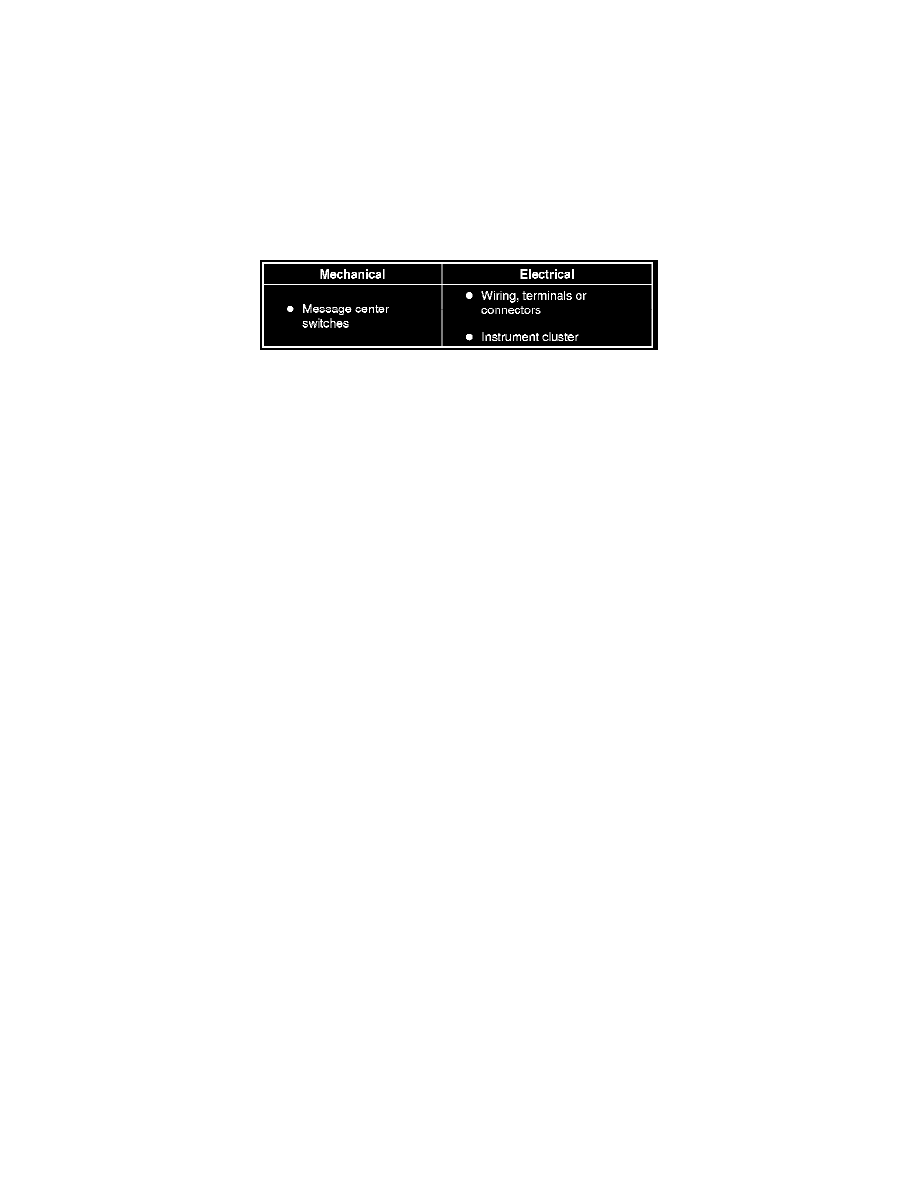Tribute 4WD L4-2.3L Hybrid (2008)

Driver/Vehicle Information Display: Initial Inspection and Diagnostic Overview
-
INFORMATION AND MESSAGE CENTER - HYBRID
Inspection and Verification
1. Verify the customer concern.
2. Visually inspect for obvious signs of mechanical or electrical damage.
Visual Inspection Chart
3. If an obvious cause for an observed or reported concern is found, correct the cause (if possible) before proceeding to the next step.
4. If the cause is not visually evident, connect the scan tool to the data link connector (DLC).
NOTE: Make sure to use the latest scan tool software release.
5. If the scan tool does not communicate with the VCM:
-
Check the VCM connection to the vehicle.
-
Check the scan tool connection to the VCM.
-
See - See: Powertrain Management/Computers and Control Systems/Testing and Inspection/Pinpoint Tests/CAN Communication
Network/Pinpoint Test 17: No Power To The Scan Tool to diagnose no power to the scan tool.
NOTE: The vehicle communication module (VCM) LED prove-out confirms power and ground from the DLC are provided to the VCM.
6. If the scan tool does not communicate with the vehicle:
-
Verify the ignition key is in the ON position.
-
Verify the scan tool operation with a known good vehicle.
-
See - See: Powertrain Management/Computers and Control Systems/Testing and Inspection/Pinpoint Tests/CAN Communication
Network/Pinpoint Test 1: The PCM Does Not Respond To The Scan Tool Or No High Speed Controller Area Network (HS-CAN)
Communication to diagnose no response from the PCM.
7. Carry out the network test.
-
If the scan tool responds with no communication for one or more modules, see -- See: Powertrain Management/Computers and Control
Systems/Testing and Inspection/Initial Inspection and Diagnostic Overview/Communications Network - Troubleshooting.
-
If the network test passes, retrieve and record the continuous memory DTCs.
8. Clear the continuous DTCs and carry out the self-test diagnostics for the instrument cluster.
9. If the DTCs retrieved are related to the concern, see Instrument Cluster DTC Chart. See: Powertrain Management/Computers and Control
Systems/Testing and Inspection/Diagnostic Trouble Code Descriptions/Information and Message Center - DTC Chart For all other DTCs, see --
See: Powertrain Management/Computers and Control Systems/Testing and Inspection/Diagnostic Trouble Code Descriptions/Diagnostic Trouble
Code (DTC) Chart - B, C, P And U Codes.
10. If no DTCs related to the concern are retrieved, see -- See: Symptom Related Diagnostic Procedures.
